When we think of public health infrastructure, hospitals and community health clinics often come to mind. But what about community spaces that create a sense of belonging, allow an ease and comfort of doing, and are curative for health and wellness for the common good? In Washington, D.C., Busboys and Poets, a restaurant, bookstore and community gathering place, has been doing just that for 20 years.
A program entitled “Creating Public Spaces for the Common Good” was hosted by Georgetown University’s Capitol Applied Learning Lab (CALL) on Sept. 12. As part of a course, students are provided with an opportunity to embrace different perspectives by connecting with leaders across D.C. These leaders are creating and delivering innovative approaches in various settings to address community health needs.
Andy Shallal, founder and CEO of Busboys and Poets, was invited to speak about his new memoir: “A Seat at the Table: The Making of Busboys and Poets.” While there, he offered students a challenge: to lead differently — through empathy, belonging and community-centered action.
At a time when many students are asking how to make a meaningful impact, Shallal’s message is important. He made it clear leadership isn’t just about titles or career ladders, it is about the impact you leave. I implore students to not wait to take action, but look for opportunities during their time at Georgetown that expose them to diverse perspectives and opportunities to collaborate with others for innovative change.
Shallal’s book recounts his background and Busboys and Poets’ formation as a cultural hub, while Shallal reflects on how his values of inclusion and justice became the foundation of both a business model and a community space for sharing lived experiences. His vision emerged from frustration with spaces that exclude rather than welcome and with leadership that prioritizes power over people.
In the following two decades, Shallal expanded his vision to eight locations in the D.C. area, creating a gathering space intertwining food, poetry, art and activism while serving as a meeting place that brings the community together. As an educator and participatory action researcher using narrative work to uplift stories for health change, I’ve long been an advocate for community spaces that provide a space to foster connection, support and restoration. Shallal has embodied this by creating a vibrant community-based cultural outlet in solidarity for better community health and well-being outcomes for the common good.
During the conversation, Shallal recounted personal stories, emphasizing how community discussions, mixed with food, books, poetry and art can serve as pathways to your physical, mental, emotional and social well-being.
Shallal’s Busboys and Poets is a positive example of an intentionally designed public space that is conducive to social determinants of health. Public health tends to concentrate on illness, disease and access to medical care, yet social connection, cultural expression and having a sense of community must also be a priority to create healthier and more equitable communities. In the long run, Shallal’s blueprint can lead to better health and improved well-being for us all.
As Shallal explained his vision, students learned that the restaurant was not simply a business or cultural space, but can also serve as an effective example of creative, community-based interventions. These interventions involve community members in their planning, implementation and evaluation to ensure effectiveness and sustainability.
Shallal shows what that looks like in practice and can do for community health and well-being, especially when done in collaboration and with intentional daily practice. Serving as a powerful place for community healing — and even resistance — this is especially important in Washington, D.C, where a long legacy of historical segregation, disinvestment and inequity has resulted in continuing health disparities.
This is precisely the kind of learning that speaks directly to the university’s emphasis on cura personalis. It isn’t just about maintaining one’s own well-being; it is about creating a culture of empathy like the one at Busboys and Poets, which provides opportunities to promote the common good, especially toward those whose needs are so often ignored.
Andy Shallal is a testament to the kind of people who have provided a space for health and justice to operate outside traditional systems. That is what occurs when someone constructs a table — literally and figuratively — for social connection, inspiration, empowerment and justice.
I encourage more students to explore and engage in the Busboy and Poets’ community efforts and other places like this. In turn, work to make your own dreams a reality. Because the future of health — and leadership — depends not just on what we do for ourselves, but on what we choose to build together.
Brian Floyd is assistant dean of academic affairs at Georgetown University’s School of Health and a faculty member with the Capitol Applied Learning Lab (CALL) program. He teaches the course “Health Innovation for the Common Good,” which connects classroom learning with experiential community engagement across Washington, D.C.


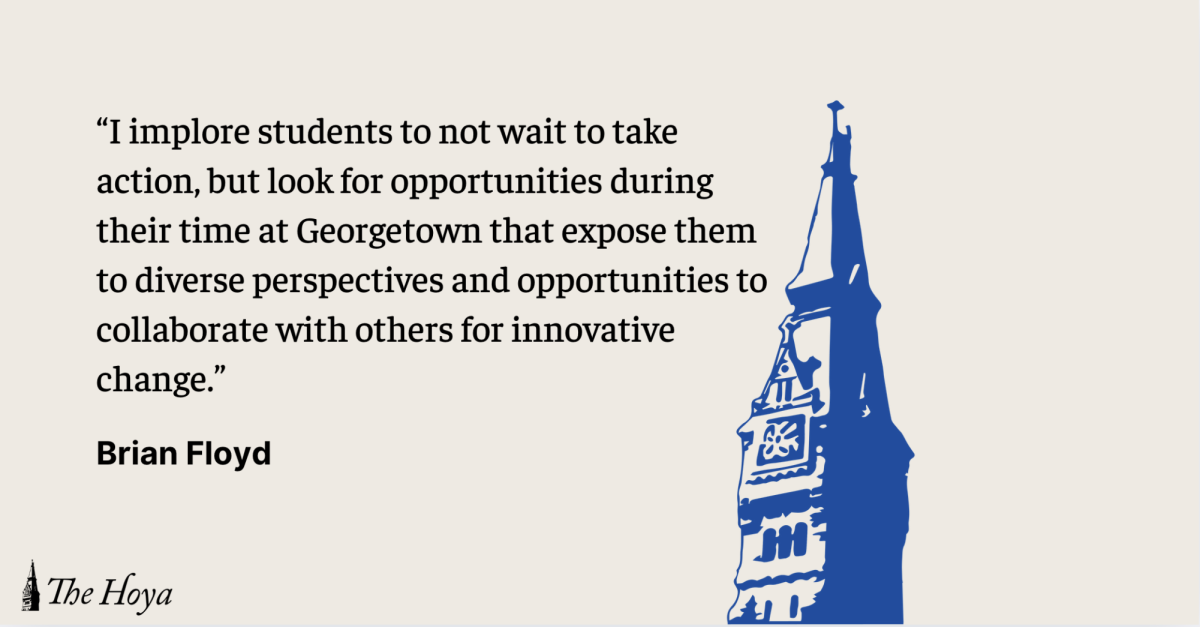
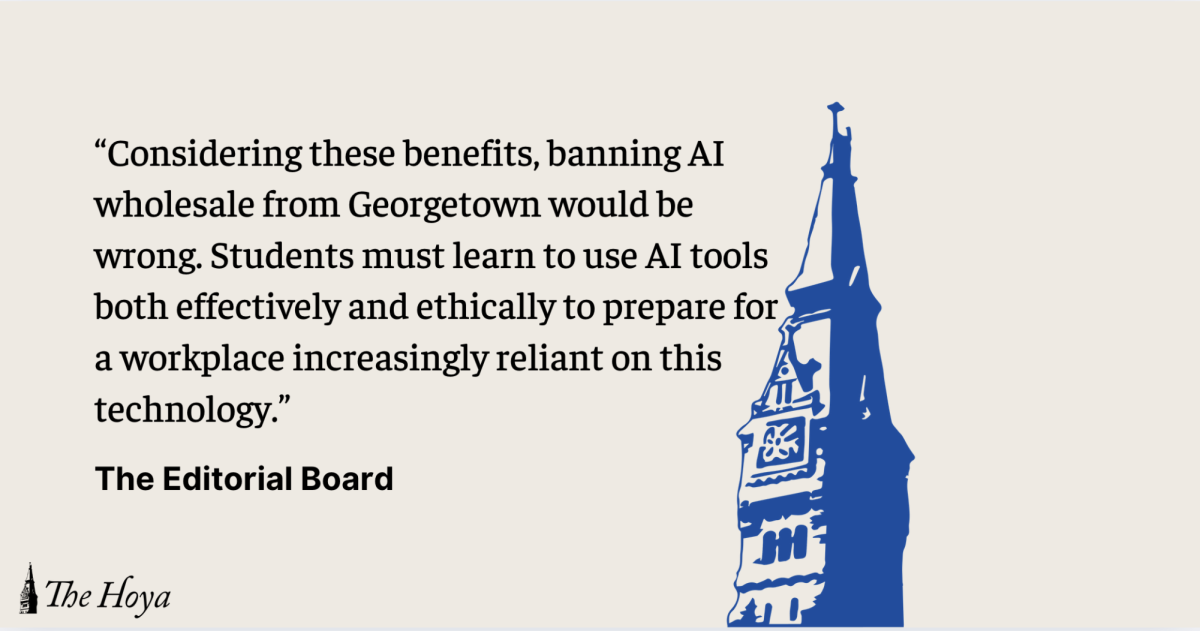
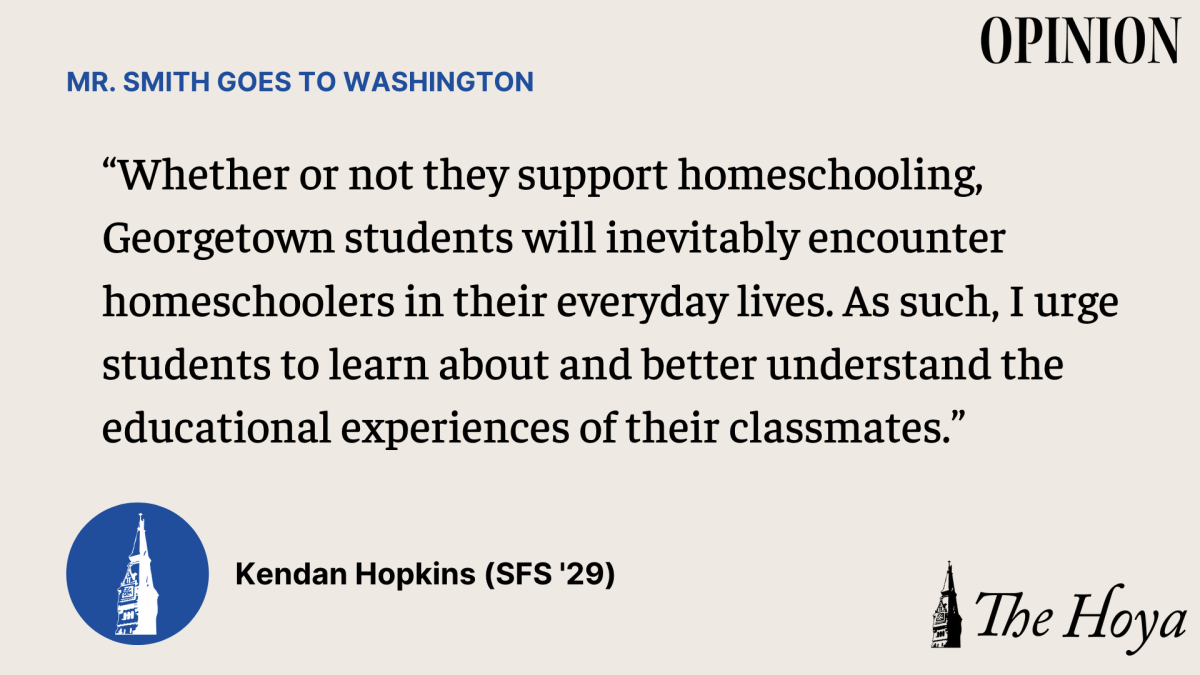
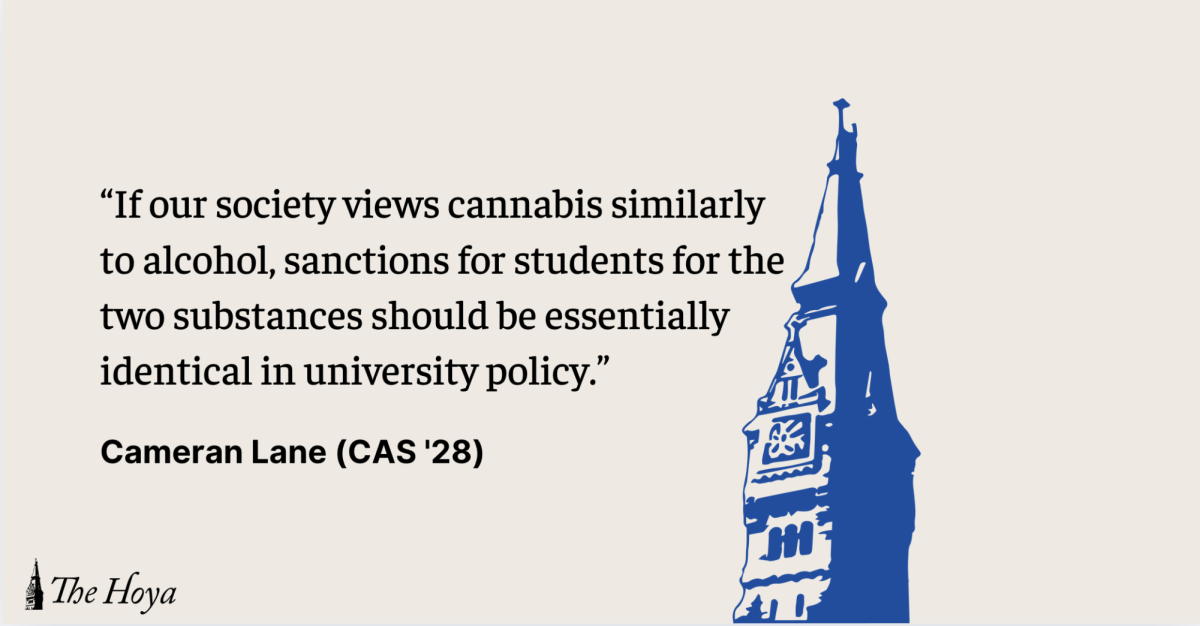
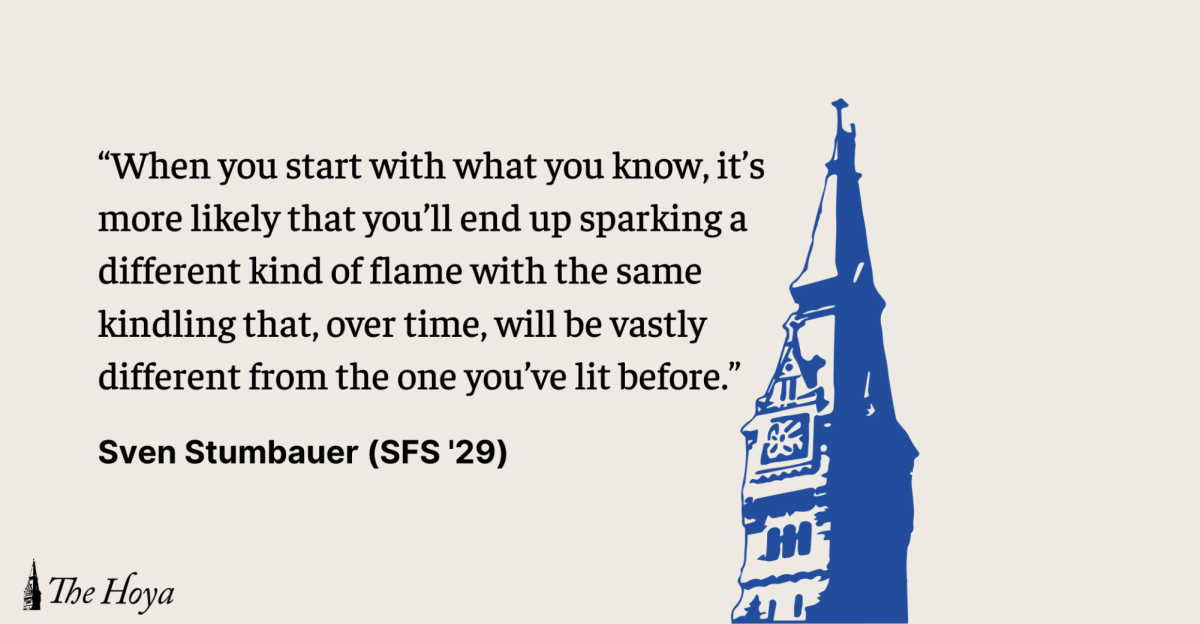
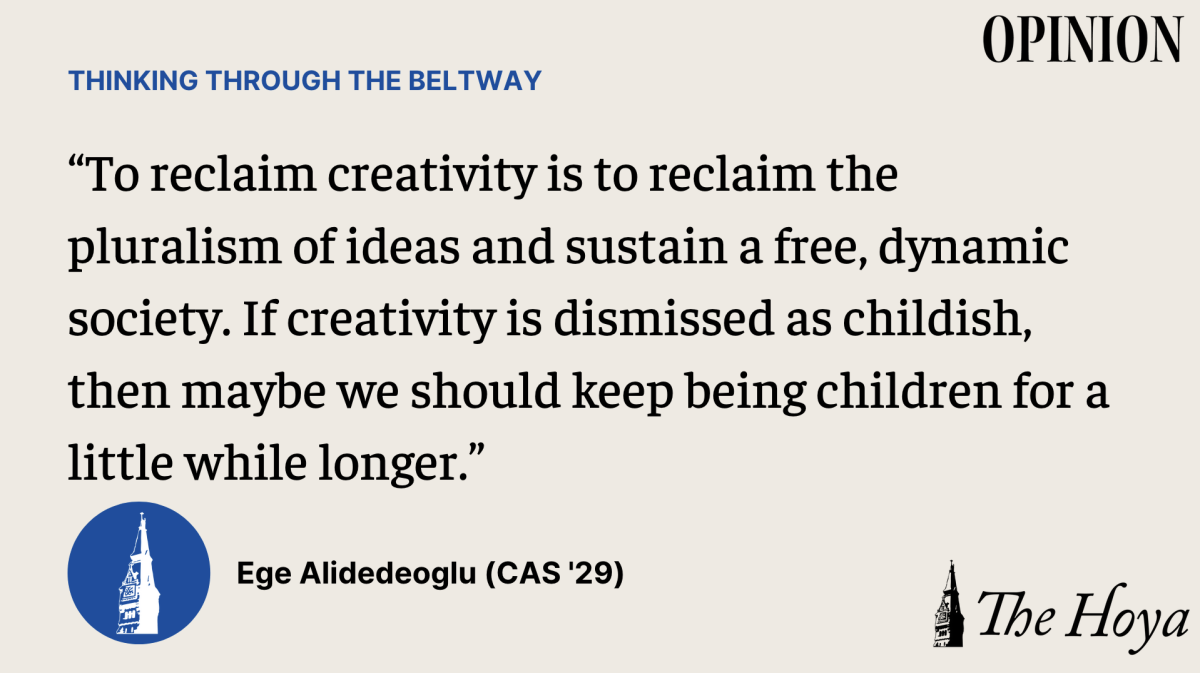
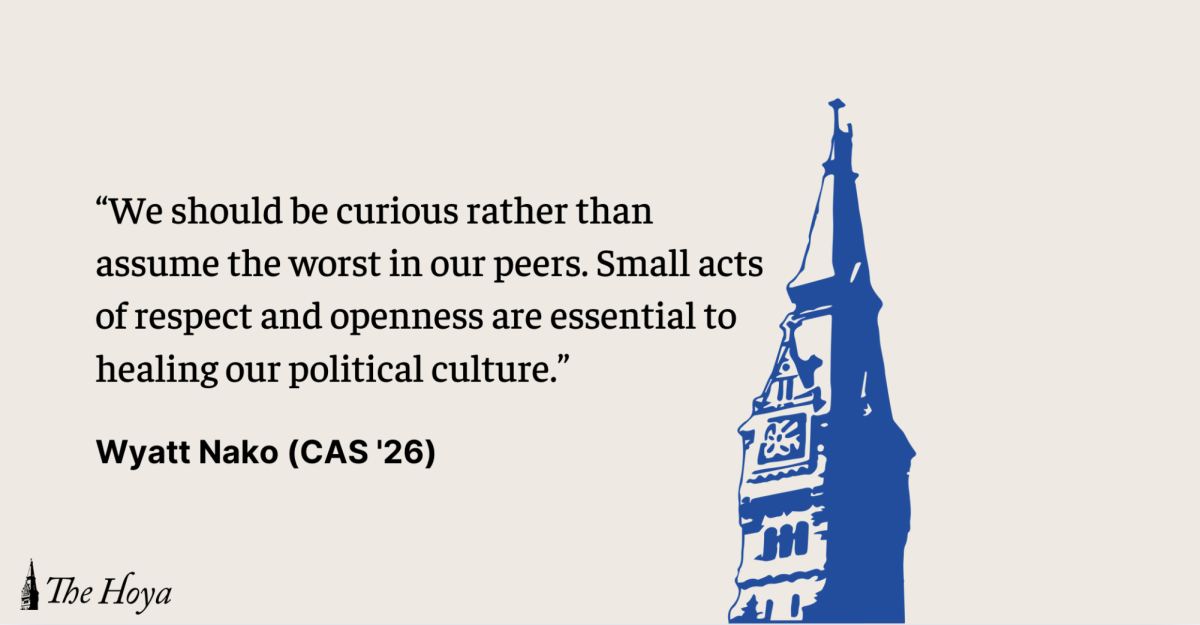
Jene’ • Sep 27, 2025 at 9:14 am
Excellent and thoughtful analysis. I’d like to take Dean Floyd’s class.